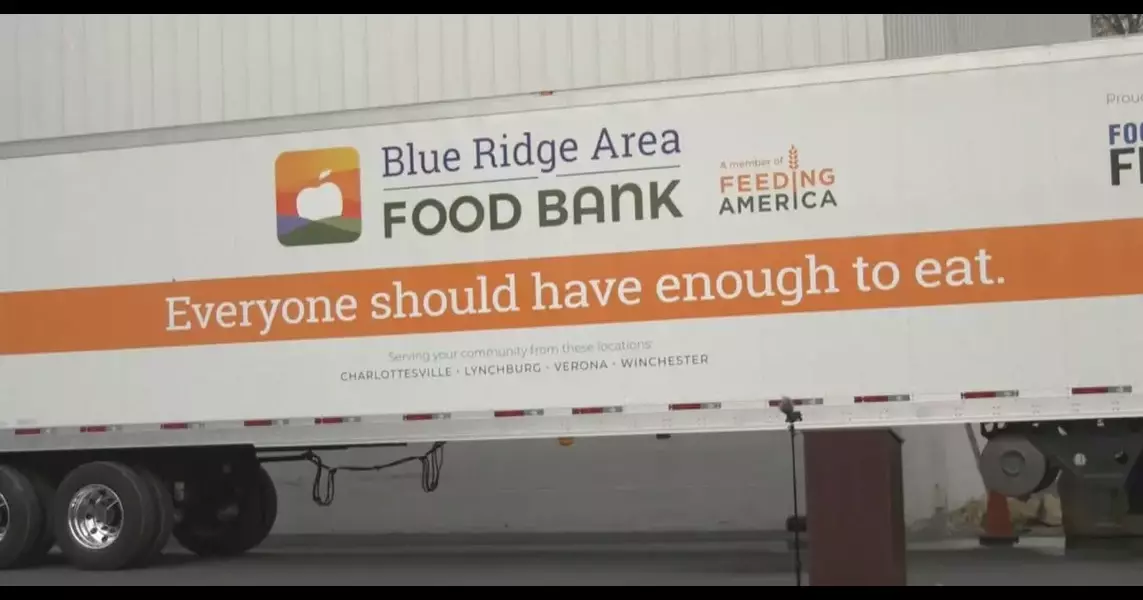Blue Ridge Area Food Bank discusses summer volunteer drop, needed donations

Combating Summer Volunteer Shortages: Strategies for the Blue Ridge Area Food Bank
The Blue Ridge Area Food Bank, a vital community resource, faces a significant challenge during the summer months - a drop in volunteer numbers. This seasonal decline can be attributed to various factors, including family vacations, children being home from school, and college students returning home for the summer break. As the food bank relies heavily on volunteers to maintain its operations, this shortage can have a profound impact on its ability to serve those in need. In this article, we explore the strategies the food bank is employing to address this challenge and ensure its continued success in providing essential services to the community.Empowering Volunteers to Make a Difference
Adapting to Seasonal Shifts in Volunteer Availability
The Blue Ridge Area Food Bank recognizes the ebb and flow of volunteer participation throughout the year. During the summer months, when families are on vacation and students are out of school, the food bank experiences a noticeable decline in the number of volunteers available to assist with its operations. Les Sinclair, the communications and PR manager for the organization, acknowledges this challenge and emphasizes the importance of adapting to these seasonal changes.To address the summer volunteer shortage, the food bank has implemented strategies to make the workload more manageable for the volunteers who are able to contribute their time. This includes tailoring the tasks and projects to suit the available workforce, ensuring that the work is appropriate for the individuals or groups who come in to lend a hand. By being flexible and responsive to the changing volunteer landscape, the food bank can maintain its operations and continue to serve the community effectively.
Encouraging Group Volunteering Opportunities
One of the key initiatives the Blue Ridge Area Food Bank has introduced is the promotion of group volunteering opportunities. Sinclair highlights the benefits of having groups of individuals, such as coworkers, family members, or friends, come together to volunteer at the food bank. These group efforts can be particularly helpful for larger projects, as the collective effort can make a significant impact.The food bank has established a new produce-sorting opportunity in Verona that is specifically designed to be a team-building activity. Sinclair encourages individuals and groups to take advantage of this opportunity, stating that it can be a great way for people to come together and make a tangible difference in their community.
Appealing to Younger Volunteers
The Blue Ridge Area Food Bank recognizes the importance of engaging with younger volunteers, particularly during the summer months when school-aged children and college students are more readily available. Sinclair emphasizes the need to provide child- and teen-friendly volunteer opportunities that cater to this demographic.By offering activities and tasks that are suitable for younger volunteers, the food bank aims to attract a diverse range of individuals who can contribute their time and energy to the organization's efforts. This not only helps to address the summer volunteer shortage but also fosters a sense of community engagement and social responsibility among the younger generation.
Fostering a Welcoming and Rewarding Volunteer Experience
To ensure that volunteers, both new and returning, have a positive and fulfilling experience, the Blue Ridge Area Food Bank places a strong emphasis on creating a welcoming and rewarding environment. Sinclair highlights the importance of making the volunteer workload appropriate and manageable, ensuring that individuals or groups feel valued and appreciated for their contributions.By tailoring the tasks and projects to the available volunteer workforce, the food bank can provide a sense of accomplishment and satisfaction to those who donate their time and effort. This, in turn, can encourage volunteers to continue supporting the organization and potentially inspire others to join in the cause.
Addressing the Need for Nutritious Summer Donations
Focusing on Child-Friendly and Easy-to-Prepare Foods
In addition to addressing the volunteer shortage, the Blue Ridge Area Food Bank is also focused on addressing the specific needs of families and children during the summer months. Sinclair emphasizes the importance of collecting donations of child- and teen-friendly food items that are easy to prepare, as many children may be home alone during the summer break.The food bank is encouraging the community to donate items that are suitable for making simple, nutritious meals, such as ingredients for peanut butter and jelly sandwiches and microwaveable mac and cheese. These types of items can provide sustenance for children who may not have access to regular meals during the summer when school is out.
Prioritizing Donations of Baby Food and Formula
Recognizing the unique needs of infants and young children, the Blue Ridge Area Food Bank is also actively seeking donations of baby food and formula. Sinclair stresses the importance of these essential items, as they can provide crucial nourishment for the youngest members of the community who may be facing food insecurity.By encouraging the donation of these specialized products, the food bank can ensure that families with infants and toddlers have access to the necessary resources to keep their children healthy and well-fed during the summer months.
Promoting a Community-Driven Approach to Donations
The Blue Ridge Area Food Bank takes a community-centric approach to its donation efforts, encouraging individuals to contribute items that they and their own families would enjoy. Sinclair suggests that the "rule of thumb" for donations should be to give what you and your loved ones would want to eat.This approach not only helps to ensure that the donated items are appealing and nutritious but also fosters a sense of community ownership and investment in the food bank's mission. By inviting the community to contribute items that they themselves would consume, the food bank can build stronger connections and encourage a more sustainable culture of giving.